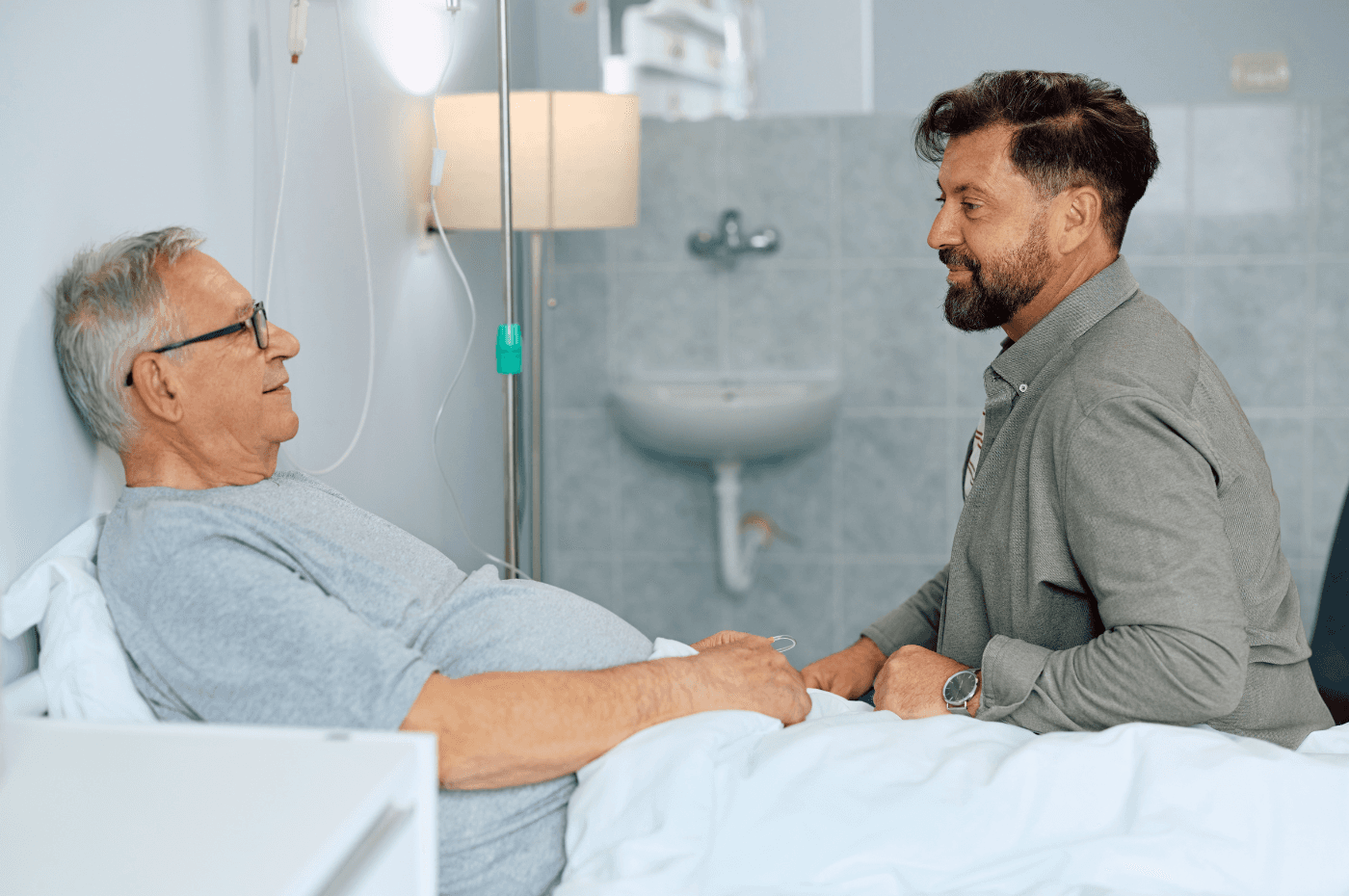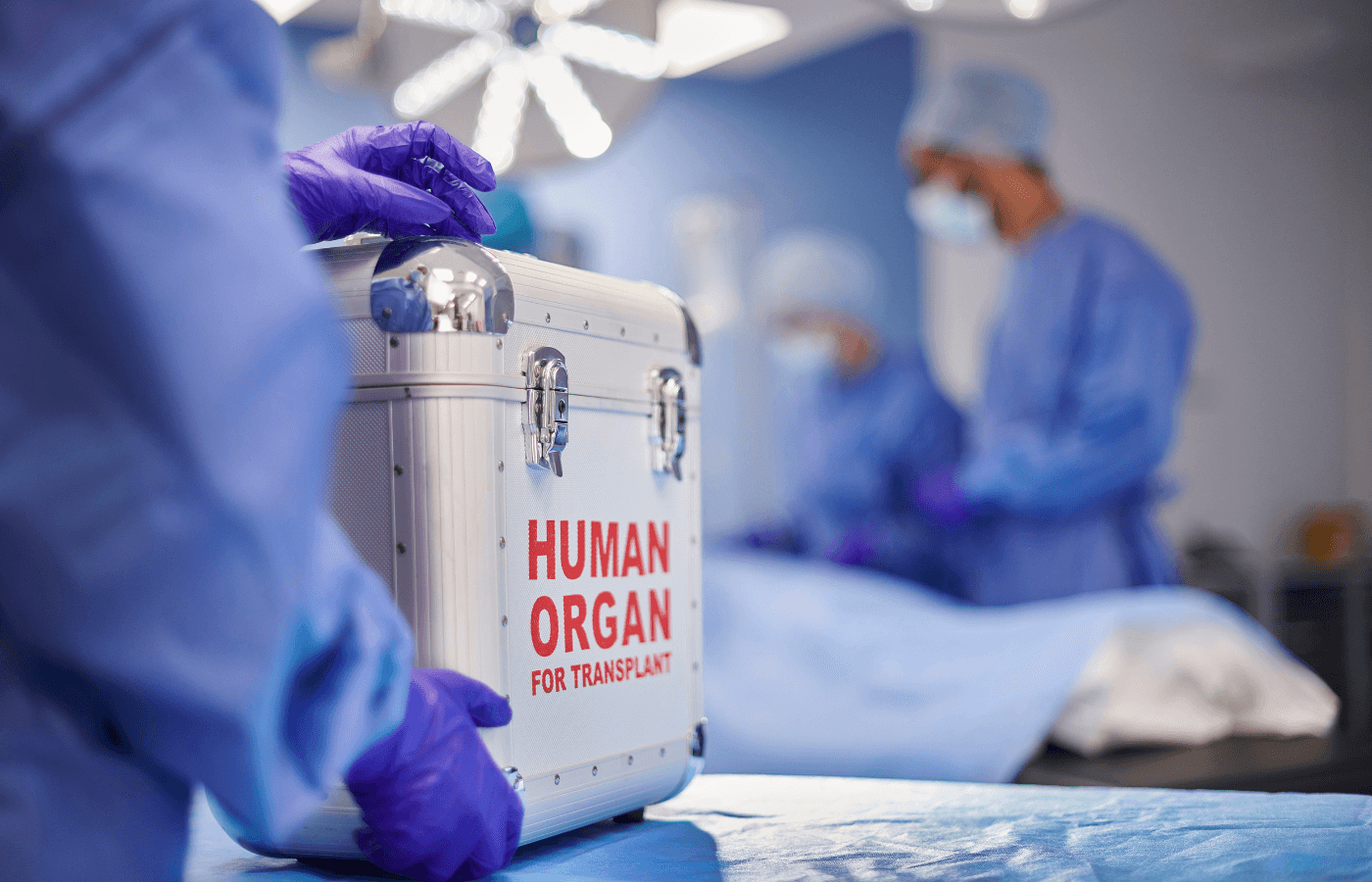Organ donation is one of the most selfless and life-saving gifts you can give, but it’s often a difficult topic for families to discuss. While it’s hard to think about what happens after death, one organ donor can save up to 8 lives, and a tissue donor can save or heal up to 75 lives, making the conversation essential.
Talking about end-of-life wishes with loved ones isn’t easy, so this guide offers tips on starting the conversation, addressing family concerns, and how Trustworthy can help make the process easier.
Key Takeaways
Start the conversation at a time when everyone is calm and open to discussion, such as a family meeting or health checkup.
It’s natural for some family members to have religious and cultural concerns. You need to acknowledge and address them patiently.
Legally document your decision by registering with the state or local DMV, and include your decision in your advance directive or living will
How to Start the Conversation with Your Family

Starting the conversation is the hardest part, but your loved ones will appreciate it instead of learning about your end-of-life wishes during an emergency. Here is how to start the conversation successfully.
Choose the Right Time and Setting for the Discussion
Choosing the right time and place for talking about organ donation with family is key to a successful outcome. It’s best to bring it up during a time when everyone is calm and open to a discussion.
Some appropriate times are during family gatherings, health checkups, or even while discussing your medical plans.
Use Personal Stories or Real-Life Examples to Express Why Donation Matters
Thinking or talking about the potential death of a loved one is difficult. A good idea is to use personal stories about the impact of organ donation. Sharing the stories of real-life people whose lives and their families have been saved can make the concept seem less scary and impersonal.
UNOS CEO Maureen McBride, Ph.D, highlights the profound impact that organ donation can have, saying:
“Each transplant represents an individual, a family, a story, and a life saved or improved,” and adds, “Each transplant also represents a selfless decision made by a grieving family or an inspired living donor, and it is incumbent upon us to honor each and every one of those irreplaceable gifts.”
You can share facts and statistics to help family members better understand your decision. For example, according to Donate Life America, more than 100,000 people are waiting for a lifesaving transplant, and another person is added to the transplant waiting list every eight minutes. In 2024, the U.S. saw increased organ transports, with an average of 132 transplants performed per day.
Address Emotional Concerns or Cultural/Religious Hesitations with Sensitivity
There are bound to be some hesitations and emotional concerns about cultural and religious beliefs, but this is okay. It’s important to acknowledge these concerns with understanding and patience.
While many religions like Christianity, Judaism, and Islam support organ donation as an act of kindness, other religions like Jehovah's Witnesses do not encourage organ donation but believe it is up to the individual to make the decisions. In cases where family members have concerns about religion and organ donation, it is a good idea to encourage them to seek guidance from their religious leaders.
While acknowledging family members' concerns, it's crucial to remember that, ultimately, it is your decision, and you should not feel guilty about it.
Overcoming Common Family Objections to Organ Donation
Despite widespread awareness campaigns, there are still some common misconceptions about organ donation that may be stopping people from signing up or supporting your decision. Dispelling these myths may help alleviate your family members' concerns.
Myth: “Doctors won’t try to save me if I’m a donor.”
There’s a common misconception that if you’re an organ donor, doctors won’t perform life-saving treatment. This is false. Medical ethics, laws, and the Hippocratic Oath require medical professionals to prioritize saving a patient’s life unless a Do-Not-Resuscitate order was completed.
Organ donation is only considered after all life-saving measures have been used.
Myth: “My religion doesn’t allow organ donation.”
You may be surprised to learn that most major religions do not prohibit organ donation. Some religions do not encourage it or will leave it up to the individuals, like Mormons and the Amish.
In fact, Pope Francis encouraged organ donation from believers, saying that “believers are called to live it as an offering to the Lord.” In 2014, he declared the act of organ donation as “a testimony of love for our neighbor.”
Myth: “I'm under 18. I'm too young to make this decision.”
Many states allow people younger than 18 years to become organ donors as long as their parents or legal guardians approve of the decision. Children who require organs sometimes benefit from smaller organs rather than adult ones.
Concern: “I don’t want my body to be disfigured.”
Many families worry about not being able to have an open casket funeral or their loved one’s body being disrespected. This is not the case. The donor is treated with honor and the utmost respect throughout the entire process, including organ retrieval.
Organs are removed during a sterile surgical procedure, and all incisions are closed neatly so there are no visible signs of organ or tissue donation.
How to Legally Document Your Organ Donation Decision

Dr Jag Singh Dhaliwa, the Medical Director at Alternaleaf, Australia's largest alternative healthcare clinic, says:
“Organ donor registration documents are worth including for comprehensive records management.”
He emphasizes that making your decision legally documented will help avoid confusion and ensure your wishes are respected.
Store your legal documents somewhere secure but still easily accessible during emergencies, like Trustworthy. Trustworthy’s game-changing Family Operating System® is designed to help families get and stay organized while keeping critical documents safe.
Register As an Organ Donor in Official State/National Registries
There are different ways to register your decision as an organ donor in the U.S. You can register online via Donate Life America or the Health Resources & Services Administration organ donor registration, which has a registry for each state.
You can also register at your state’s motor vehicle department (DMV) when applying for or renewing your driver’s license ID.
Add Donation Preferences to Your Driver’s License or State ID
You can notify people of your organ donor registration by indicating your organ donor status on your driver’s license or state ID. This is particularly useful in an emergency when you cannot express your wishes verbally.
Include Organ Donation in Your Advance Directive or Living Will
Medical documents like an advance directive or your living will are designed to reflect your end-of-life decisions, including your organ donor status. Make sure you review that document annually to ensure it reflects your updated decisions.
Designate a Healthcare Proxy to Ensure Your Wishes Are Followed
It’s recommended that you appoint someone you trust as your healthcare proxy. This person will ensure that your wishes are respected and advocate for you if you cannot communicate end-of-life wishes.
With Trustworthy, the process of uploading and organizing these important documents is hassle-free. The built-in scanner on the mobile app allows you to instantly scan and upload your medical documents. Say goodbye to creating a filing system from scratch with Trustworthy’s AI-powered Autopilot feature that has tools like predefined filing categories, filename suggestions, and document insights for faster retrieval with the swipe of a finger.
You can rest assured that your medical and family documents are secured with bank-level security measures, such as AES 256-bit encryption, multi-factor authentication, biometric authentication, physical security keys, onscreen redaction, and tokenization.
Talking to Your Doctor and Healthcare Team
It’s not just your family members who must be aware of your decision, but also your healthcare team. Letting your primary care physician know about your decision allows them to document it in your medical file and other records.
You also need to do this if you’re preparing for surgery to reinforce your commitment. Make sure you understand how brain death is determined before committing to your decision. Discussing this and other concerns with your doctor is a good idea.
Updating and Sharing Your Organ Donation Preferences

Your health status, medical decisions, and organ donation preferences may change over time, and your records must be updated to reflect these changes and ensure your wishes are honored.
Regularly review your organ donation preferences in registries, medical records, and on your driver’s license. Trustworthy can help by sending automated reminders each year or after major life or health changes.
Be sure to share any updates with your family so they can support your wishes. With Trustworthy’s collaboration tools, you can give trusted family members or advisors controlled access to your documents.
To securely share files with people outside your network, use SecureLinks™—temporary, view-only links to specific documents in your Trustworthy vault.
What to Do If a Loved One Hasn’t Expressed Their Wishes
If a loved one hasn’t documented their organ donation wishes, the decision falls to family members. In such cases, consider their values and past conversations about helping others, as donation may reflect their beliefs.
Without a clear directive, the next of kin must decide, often during an already stressful time. You can help avoid this burden by having open conversations early, ensuring everyone understands and respects each other’s wishes.
Frequently Asked Questions
What happens if I register as a donor but later change my mind?
You can change your mind at any time by removing your name from whatever online registry you use. Don’t forget to update your family and forms, such as your advance directive and living will.
Can I choose which organs or tissues I want to donate?
Yes. When registering as an organ donor, you can indicate your preferences, including being a living donor.
What happens if my family disagrees with my documented decision after I pass away?
If you have legally documented your decision to be an organ donor, your wishes will be followed by medical preferences despite your family’s objections. You can specify specific organs and tissues you want to donate.
We’d love to hear from you! Feel free to email us with any questions, comments, or suggestions for future article topics.
Trustworthy is an online service providing legal forms and information. We are not a law firm and do not provide legal advice.













